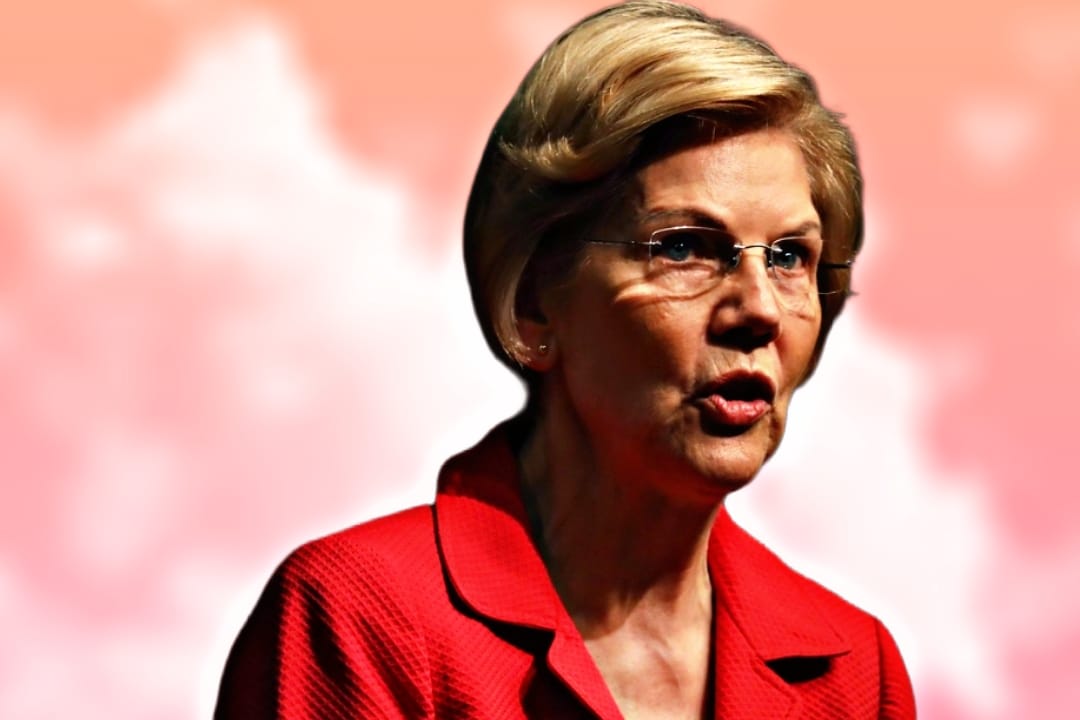Elizabeth Warren is one of the most prominent and influential political figures in contemporary American politics. A progressive Democrat, U.S. Senator from Massachusetts, and former presidential candidate, Warren has built a career marked by fierce advocacy for economic justice, consumer protection, and financial regulation. Known for her sharp intellect, compelling oratory, and commitment to progressive reforms, Warren has shaped the political discourse on key issues such as income inequality, student debt, and corporate accountability.
In this article, we will take an in-depth look at Elizabeth Warren’s early life, political rise, key policies, and the legacy she is building. This exploration aims to provide a comprehensive understanding of her career, values, and contributions to American politics, while integrating SEO-friendly keywords to ensure visibility.
Early Life and Education: The Roots of Elizabeth Warren Political Philosophy
Elizabeth Ann Warren was born on June 22, 1949, in Oklahoma City, Oklahoma, to a middle-class family. Her father, Donald Warren, worked as a janitor, and her mother, Pauline, stayed at home to care for Elizabeth and her siblings. The family faced financial hardship when Warren’s father suffered a heart attack, forcing him to quit his job. This early exposure to economic struggle would later influence Warren’s political philosophy.
Elizabeth Warren attended George Washington University for her undergraduate studies and went on to earn a law degree from Rutgers Law School in 1976. After graduating, she began teaching law at several universities, including the University of Houston and the University of Texas. It was during this time that she became interested in bankruptcy law, an area of law that would play a pivotal role in her later career as an advocate for consumer protection and financial reform.
In the 1990s, Warren became a leading scholar in the area of bankruptcy law, writing extensively on the challenges faced by consumers and the negative consequences of corporate-driven bankruptcy policies. She also wrote a highly influential book, The Two-Income Trap: Why Middle-Class Mothers and Fathers Are Going Broke, which argued that rising costs and stagnant wages were pushing middle-class families into financial ruin.
Political Career: From Harvard Law to Washington D.C.

Elizabeth Warren’s political career began in earnest in the 2000s. After years of teaching and researching bankruptcy law, Warren began speaking out on issues related to economic inequality. She became a vocal critic of the credit card industry, advocating for greater transparency and protection for consumers who were being taken advantage of by predatory lending practices.
Elizabeth Warren first foray into national politics came when she was appointed to the National Bankruptcy Review Commission in 1995. During this time, she advocated for policies that would protect consumers from financial ruin, and her work gained national attention. In 2008, Elizabeth Warren was appointed by then-President Barack Obama to serve as a special advisor to the U.S. Treasury Department to help set up the Consumer Financial Protection Bureau (CFPB), a new federal agency created in response to the 2008 financial crisis. Warren’s role in founding and leading the CFPB cemented her reputation as a fierce advocate for consumer rights and financial reform.
Elizabeth Warren work at the CFPB drew widespread praise from progressives and consumer advocates, but it also earned her fierce opposition from conservative lawmakers and the banking industry. Despite the opposition, Warren’s work led to a historic win for consumers when the CFPB was officially created in 2011, with Warren as a leading voice in its development.
Elizabeth Warren Senate Campaign and Political Rise
In 2012, Elizabeth Warren made the leap from academic and policy advocate to active politician by running for the U.S. Senate in Massachusetts. She challenged incumbent Republican Senator Scott Brown in a race that would become one of the most watched in the country. Elizabeth Warren campaign was focused on issues of economic justice, calling for higher taxes on the wealthy, universal healthcare, and stricter regulations on Wall Street.
Elizabeth Warren message resonated with voters, particularly in Massachusetts, which had a strong progressive tradition. Her policy proposals, grounded in her long-standing advocacy for working families and consumers, appealed to a broad base of voters. She also garnered support from grassroots organizations, labor unions, and progressive activists who saw her as a champion of their causes.
In one of the most highly anticipated Senate races of 2012, Warren defeated Scott Brown by a narrow margin, becoming the first woman ever elected to the U.S. Senate from Massachusetts. Her victory was celebrated as a major win for progressives and women in politics.
Key Policies and Legislative Work in the Senate

Since taking office in 2013, Elizabeth Warren has established herself as a leading progressive voice in the U.S. Senate. She has focused much of her legislative work on issues related to economic inequality, consumer protection, and corporate accountability. Warren is a staunch advocate for the middle class and has consistently pushed for policies aimed at reducing wealth inequality, raising wages, and improving access to healthcare and education.
1. Consumer Protection and Financial Regulation
One of Elizabeth Warren’s signature achievements in the Senate has been her focus on consumer protection and financial reform. As a leading voice on the Senate Banking Committee, Warren has fought for tougher regulations on Wall Street and stronger protections for consumers. She has been a vocal critic of the practices of big banks and financial institutions, advocating for policies that would hold them accountable for their role in the 2008 financial crisis.
Elizabeth Warren advocacy for the expansion of the Consumer Financial Protection Bureau (CFPB) is one of her most significant policy positions. She has pushed for greater oversight of financial institutions, stricter lending standards, and expanded protections for consumers facing predatory practices. She has also championed efforts to reduce student loan debt, calling for the cancellation of a portion of federal student loans and for lowering interest rates for borrowers.
2. Universal Healthcare and Medicare for All
Elizabeth Warren is a strong proponent of universal healthcare and has been one of the leading voices in Congress advocating for Medicare for All. Warren’s plan to implement a single-payer healthcare system has gained significant attention, especially in the context of the broader Democratic Party’s debate over healthcare reform.
Elizabeth Warren proposal for Medicare for All would transition the U.S. healthcare system to a publicly funded, single-payer system, with the goal of providing comprehensive coverage for all Americans. Her plan calls for eliminating private insurance and creating a national healthcare system funded through taxes on corporations and the wealthiest Americans.
While the Medicare for All plan has faced criticism from some Democrats and Republicans who argue it is too costly or impractical, Warren has remained steadfast in her support for universal healthcare, framing it as a moral imperative to ensure that no one is excluded from essential medical care due to their income or employment status.
3. Economic Inequality and Progressive Taxation
Another cornerstone of Elizabeth Warren political philosophy is her commitment to addressing economic inequality. She has consistently advocated for progressive taxation policies aimed at ensuring that the wealthiest Americans pay their fair share. Warren has called for higher taxes on the ultra-wealthy and large corporations, including the implementation of a wealth tax on the richest Americans.
Elizabeth Warren “Ultra-Millionaire Tax” would impose a 2% annual tax on households with a net worth above $50 million, with a 3% tax on those worth over $1 billion. This proposal aims to reduce wealth inequality and fund ambitious policy initiatives such as universal childcare, free college education, and expanded healthcare access.
4. Climate Change and Green New Deal
Elizabeth Warren has also been a vocal advocate for climate action and environmental justice. She supports the Green New Deal, a comprehensive plan to combat climate change through large-scale government investment in renewable energy, infrastructure, and clean technology. Warren’s climate plan includes ambitious goals for reducing carbon emissions, creating millions of green jobs, and investing in sustainable energy solutions.
Her climate policies emphasize the need for government intervention to address the urgent threat of global warming and to ensure that the transition to a green economy benefits working-class communities and communities of color, who are often disproportionately affected by environmental degradation.
The 2020 Presidential Campaign: Elizabeth Warren Vision for America

In 2020, Elizabeth Warren sought the Democratic nomination for President of the United States. Running on a platform of progressive policies, Warren emphasized her commitment to tackling the economic challenges facing everyday Americans, including the rising cost of healthcare, housing, and education. She also promised to break up large corporations, regulate Wall Street more effectively, and ensure greater economic opportunity for all.
Elizabeth Warren presidential campaign was marked by her strong performance in early debates and her ability to articulate a clear vision for the future of the country. Her campaign attracted a broad coalition of supporters, including progressives, women, and younger voters who were excited about her bold proposals and pragmatic approach to solving the country’s most pressing problems.
Although Warren did not secure the Democratic nomination, her campaign had a significant impact on the party’s platform and on the national conversation about the role of government in addressing inequality and corporate power. Many of her policy ideas, including universal childcare and the ultra-millionaire tax, became central to the party’s progressive agenda.
Legacy and Future Outlook
As Elizabeth Warren continues to serve in the Senate, her legacy as a leading progressive champion for economic justice is secure. She has reshaped the national conversation on economic inequality, financial regulation, and healthcare, and her work has had a lasting impact on American politics.
Looking ahead, Warren’s influence will continue to shape debates on key issues, from wealth inequality to climate change. Whether she runs for President again in the future or continues to serve as a forceful advocate in the Senate, her vision for a fairer, more just America will remain at the heart of her political identity.
Conclusion
Elizabeth Warren’s career has been defined by her commitment to fighting for the middle class, advocating for consumers, and challenging the power of corporate elites. From her early work as a bankruptcy law professor to her tenure as a U.S. Senator and presidential candidate, Warren has consistently pushed for policies aimed at reducing inequality and ensuring that all Americans have the opportunity to succeed.
Through her policies on healthcare, taxation, financial reform, and climate change, Warren has become one of the most influential progressive voices in modern American politics. Her legacy will likely continue to shape the direction of the Democratic Party and the broader political landscape for years to come.
By championing the causes of the working class and marginalized communities, Elizabeth Warren has carved out a unique and important place in American political history, and her work is far from over.

